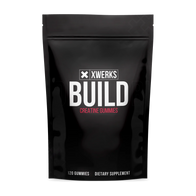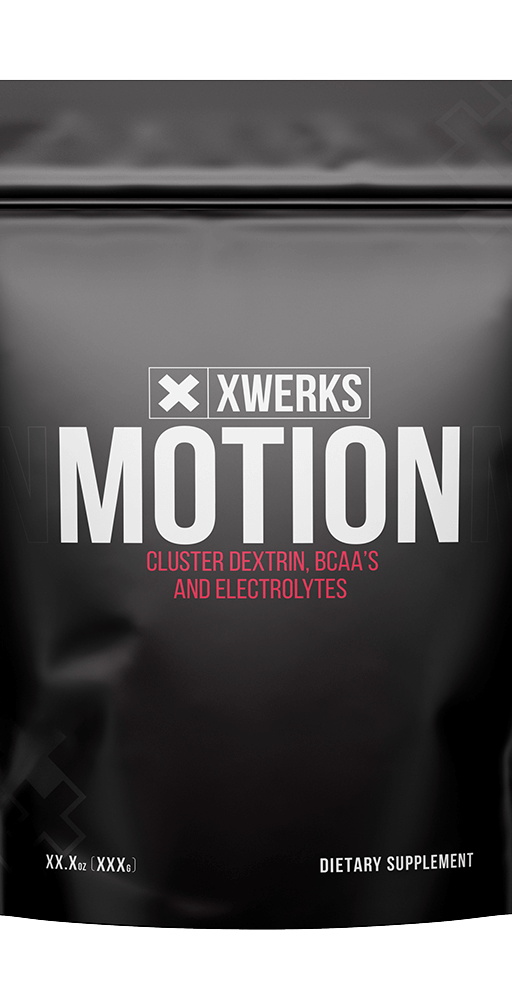Testosterone is the primary sex hormone in males, but females do have small amounts of it. It is produced in the testicles in men and the ovaries in women. The adrenal glands also produce small amounts of it.
It is critical to an individual’s overall health and well-being. Low levels can have unfavorable effects related to body composition, sex drive, sexual function, and fertility. It can even lead to infertility.
One study looked at the testosterone levels of 9,054 males between the ages of 19 and 39 and at a healthy weight. The normal testosterone levels ranged between 264 to 916 nanograms per deciliter.
That is obviously a wide range and everyone is different. Two people can have the same test levels and look and feel totally different.
Below, we’ll explore 8 ways that you can potentially increase your testosterone levels.
Keep Yourself Active
If you don't workout, you might as well stop reading now.
One study in the European Journal of Applied Physiology showed that individuals who are active have higher testosterone levels than their less active counterparts. In another study, it was suggested that physical activity had more of an influence on testosterone levels than losing weight.
That being said, try not to overdo it because too much exercise could have the opposite effect and decrease testosterone levels. In the same study referenced above, it was discovered that long-distance runners may have decreased testosterone levels. The belief was that it was due to improper nutrition and inadequate energy levels.
Adequate Sleep
If you are not getting adequate sleep, it negatively impacts the levels of chemicals and hormones that your body requires to function properly- including testosterone. In one study by the University of Chicago, it was indicated that men who do not get enough sleep experience decreased testosterone levels.
Ten healthy men around the age of 14 spent 1 week at home sleeping for 8 hours per night. Then, they were brought to a lab for the next 11 nights. For the first 3 nights, they slept for 10 hours. For the next 8 nights, they had restricted sleep of only 5 hours. The researchers checked their blood every 15 to 30 minutes on the last night of 10-hour sleep, and on the sleep-restricted nights. After 1 week of restricted sleep, daytime testosterone levels had decreased by 15%. During the normal aging process, testosterone only decreases by 1% to 2% annually.
Therefore, making sure you’re getting adequate sleep may help you maintain or improve your testosterone levels. Ideally, you should be getting 7 to 8 hours of sleep every night. If you struggle with this, speak with your medical provider.
Balanced Diet
Over the years, research has proven again and again that eating well is critical for testosterone levels and overall health. One report from the Journal of Neuroinflammation showed that low testosterone levels and being overweight may promote impaired neurological function as well as a variety of inflammatory conditions.
Research also has shown that yo-yo dieting and overeating can disrupt hormone levels, which is most evident in those who are very active and athletes.
Ideally, your diet should consist of primarily whole foods and have a healthy balance of fats, carbs, and proteins. By ensuring that you are consuming a healthy, nutritious diet, you keep your hormone levels balanced and promote long-term health.
Lose Weight
According to research, men who carry some extra weight have decreased testosterone levels. In one study from the medical journal, Clinical Endocrinology, it was shown that obese males between the ages of 14 to 20 have up to 50% less testosterone than their counterparts with a healthy weight.
Reduce Stress
According to experts, chronic, long-term stress is very dangerous and may cause a variety of issues within the body. Stress increases the production of cortisol, which manages a variety of processes within the body including metabolism and immune response.
When cortisol is elevated, it has a negative impact on testosterone levels. In one 2016 study, it was proven that stressful events caused erratic changes to testosterone. For 2 months before final exams, 58 medical students (both male and female), answered questions and gave salivary samples while under the stress of exams. The men showed increased testosterone and women showed decreased testosterone.
According to the researchers, this increased testosterone in males resulted in emotional inhibition, rumination, and aggression- which could explain some of the differences between males and females.
Vitamins/Supplements
In one study by the Journal of Hormone and Metabolic Research, vitamin D supplementation may correct a deficiency and could also increase testosterone levels.
One way that you can manage your vitamin D levels is to get at least 15 minutes of direct sunshine each day. You can also include foods that are high in vitamin D, such as salmon and other fatty fishes as well as fortified cereal products and milk.
The herb Tongkat Ali has been shown to increase test levels in 90% of users as well as improve sperm quality.
Boron is a trace mineral many of us a deficient in. Supplementing with boron has been shown to have a variety of benefits including increased testosterone reduction in inflammatory markers.
DHEA can also help produce testosterone, as well as other hormones that have an effect on your body composition. As you age, DHEA and testosterone levels begin to decrease.
In one study, older men were given a DHEA supplement. These supplements produced small, but substantially positive effects on overall body composition. The healthy fats found in things like flaxseed and fish may help your body use DHEA.
If the testosterone decrease is due to a deficiency, magnesium supplementation may help you return to normal levels.
In a study found in Biological Trace Element Research, it was shown that taking supplements for a period of 1 month may increase testosterone levels. This report also stated that individuals who are physically active experience a more substantial increase in testosterone levels than those who are sedentary.
There is also some research indicating that a zinc deficiency also contributes to decreased testosterone levels. In a 2007 study, it was shown that 4 weeks of zinc supplementation may prevent a decrease in testosterone levels in men who were physically active.
You can correct a magnesium and zinc deficiency through your diet by adding foods such as dark leafy greens, whole grains, pumpkin seeds, and flax seeds.
Creatine can also increase testosterone levels. A 2006 study showed that college football players had higher testosterone levels after 10 weeks of creatine supplementation. Creatine is easy to supplement with and you can find small amounts of creatine naturally in beef, tuna, and salmon.
XWERKS Rise has several clinically backed ingredients to help improve your testosterone levels.
Review Your Medications
Prescription medications are used to manage an array of health issues- but they are also one of the most common causes of low testosterone. A report in BMC Medicine showed that statins, which are prescribed for high cholesterol, may reduce testosterone. If you believe that your low testosterone is due to your medications, you should bring it to the attention of your medical provider.
Avoid Drug/Alcohol Abuse
Research shows that drug and alcohol abuse can decrease testosterone levels. The National Institute of Alcohol Abuse and Alcoholism states that alcohol use can have an effect on male reproductive glands/hormones.
Conclusion
Testosterone production begins before birth and assists in male sex organ development. It is a hormone that drives libido, sperm production, body fat distribution, strength, and red blood cell creation in men. Women also produce testosterone, but at much lower levels.
As you can see, there are several natural ways that you can boost testosterone production. Try these first and if that doesn’t help, consult your medical provider.






















